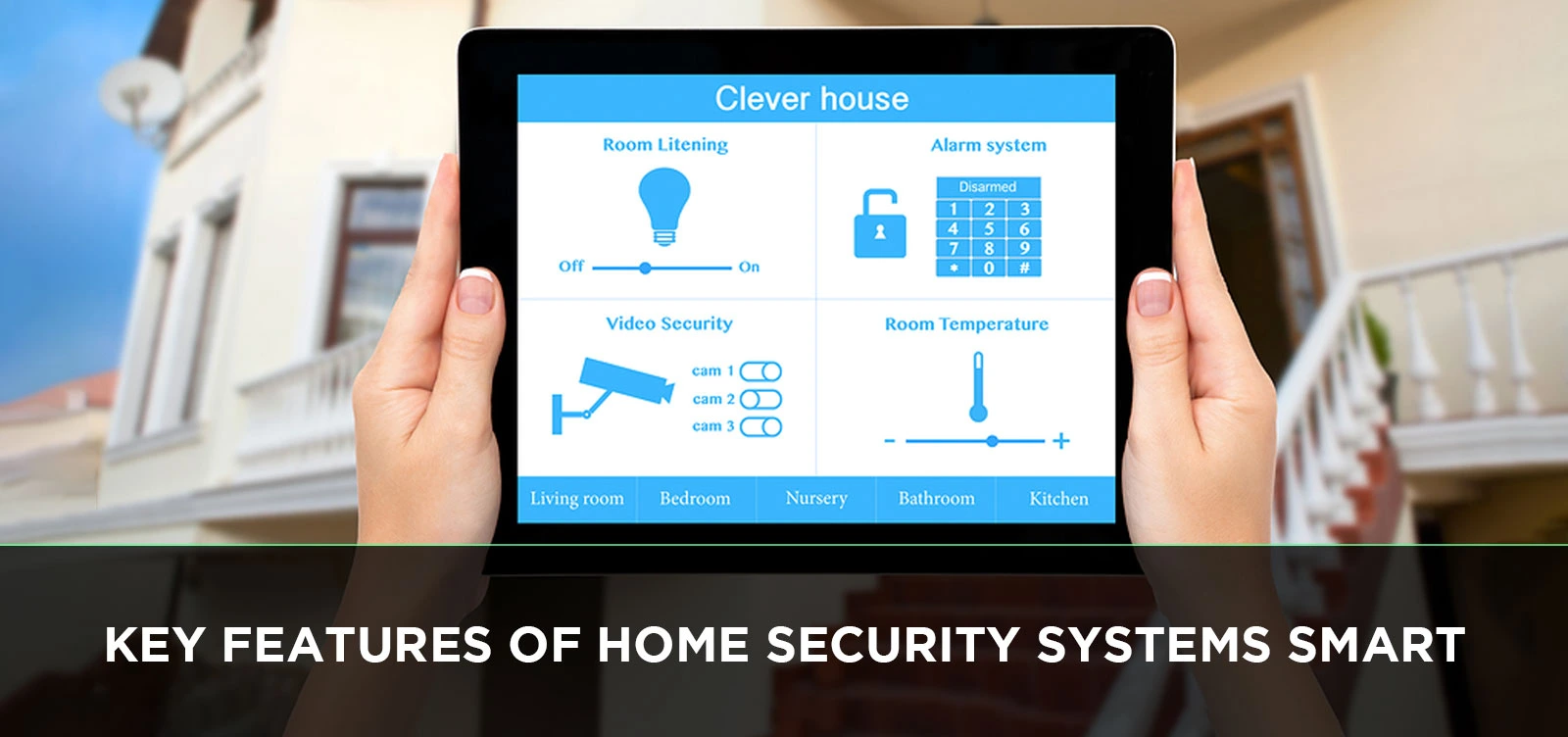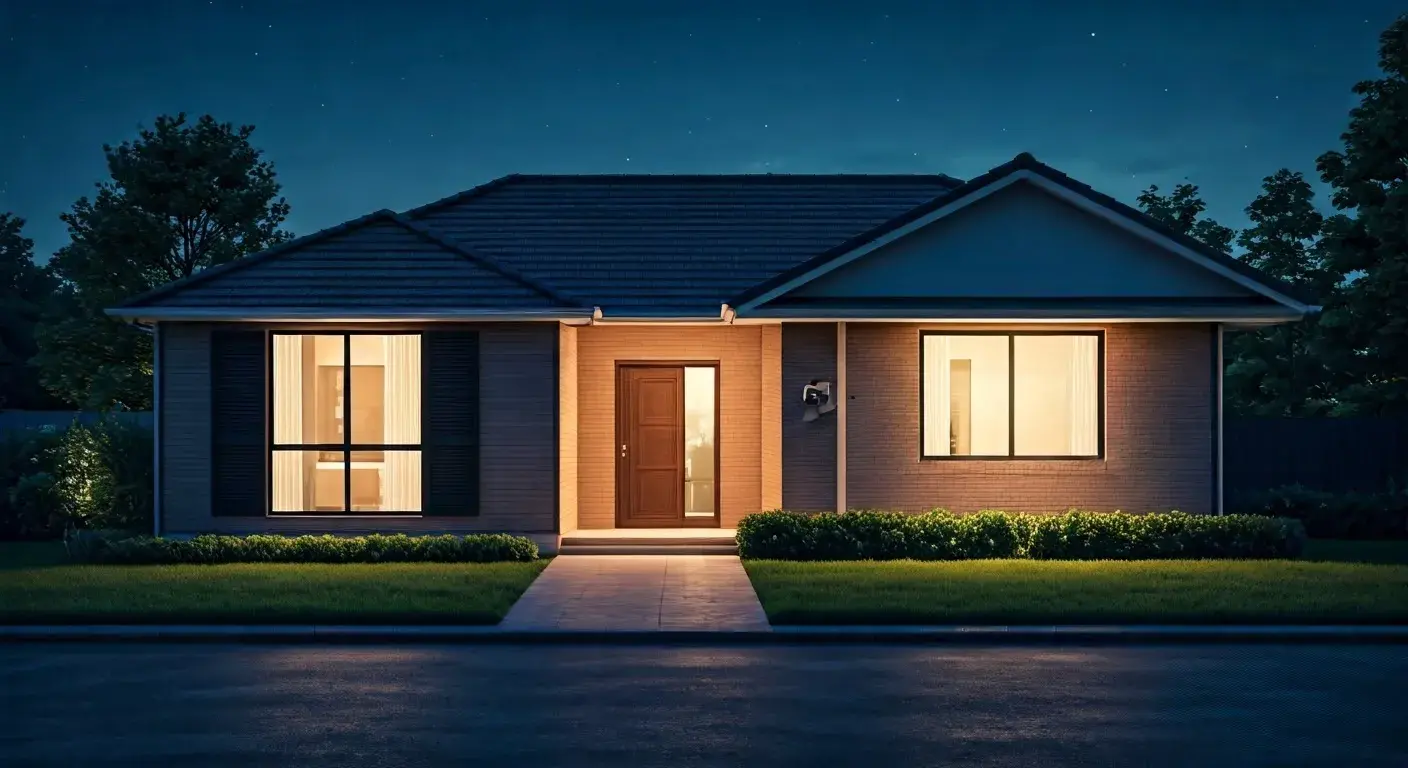Home security systems have become increasingly smarter in recent years, providing homeowners with advanced features that enhance protection and peace of mind. These key features offer a comprehensive approach to home security, ensuring that your property is safeguarded from potential threats. Here are some of the noteworthy features of smart home security systems:
List of Top Features of Home Security Systems Smart
1. Remote Monitoring: One of the standout features of smart home security systems is the ability to remotely monitor your property from anywhere, at any time. Using a mobile app or a web portal, you can keep an eye on your home through live video feeds, receive instant notifications, and even control your security system remotely.
2. Smart Sensors: Smart security systems are equipped with various sensors that detect and react to potential threats. These sensors include motion detectors, door/window sensors, and glass break sensors. They can alert homeowners and trigger the alarm system if any unusual activity is detected, helping to prevent burglaries and break-ins.
3. Integration with Home Automation: Smart security systems seamlessly integrate with other smart home devices, enabling convenient control and automation. You can link your security system with smart lights, locks, thermostats, and more. For instance, when the security system is armed, it can automatically turn off lights and adjust the temperature, saving energy and enhancing security.
4. Video Surveillance: High-definition cameras are a crucial component of smart home security systems. These cameras capture crystal-clear footage, both indoors and outdoors, which can be accessed remotely. They provide a visual deterrent to potential intruders and allow homeowners to monitor their property visually, enhancing overall security.
5. Two-Way Audio: Many smart security systems have two-way audio capabilities, allowing homeowners to communicate with visitors or potential intruders remotely. This feature can be incredibly useful for verifying identity, granting access to trusted individuals, or deterring unwelcome guests.
6. Environmental Monitoring: Some smart security systems include environmental monitoring sensors that detect smoke, fire, carbon monoxide, and even water leaks. These sensors can send instant alerts to homeowners and, in some cases, automatically contact emergency services, ensuring the safety of your home and loved ones in case of emergencies.
7. Mobile Alerts and Notifications: Smart security systems provide real-time mobile alerts and notifications that keep you informed about any security-related activities. Whether it's a triggered alarm, a low battery, or a system malfunction, these notifications keep you connected and help maintain the integrity and functionality of your home security system.
How to Choose smart home security systems?
1. Assess your needs: Before venturing into the world of smart home security systems, evaluate your particular requirements. Are you looking for surveillance cameras, motion sensors, door/window sensors, or all of them? Understanding your needs will help focus your search and make the selection process easier.
2. Consider security features: The security features offered by a smart home security system are crucial. Look for systems with features such as motion detection, live video streaming, night vision, and two-factor authentication. These features enhance the level of security and provide peace of mind.
3. Compatibility: Ensure that the smart home security system you choose is compatible with other smart devices in your home. Integration with voice assistants like Amazon Alexa or Google Assistant can streamline control and enable automation capabilities.
4. Wireless connectivity: Opt for a wireless smart home security system, as it offers hassle-free installation and flexibility for repositioning devices. Wireless systems are also more secure, as they are less vulnerable to physical tampering.
5. Mobile app and remote access: A smart home security system with a user-friendly mobile app that enables remote access to security cameras, notifications, and system control is highly advantageous. This allows you to monitor your home from anywhere, giving you the flexibility to ensure safety even when you're away.
6. Professional monitoring options: Consider whether you want professional monitoring services or prefer a self-monitoring solution. Professional monitoring systems can provide emergency response services, giving you an added layer of protection.
7. Storage options: Evaluate the storage options provided by the smart home security system. The ability to easily store recorded footage or images in the cloud or a local storage device can be critical in case of any incidents or for reviewing the footage later.
8. Scalability: Plan for the future by selecting a smart home security system that is easily expandable. This allows you to add more devices as your needs grow or as new technologies emerge without the need for a complete system overhaul.
9. Reviews and ratings: Read customer reviews and ratings for the smart home security system you are considering. Learn from the experiences of others to ensure that the system meets your expectations and is reliable in terms of performance and customer support.
10. Cost and budget: Last but not least, consider the cost and your budget when selecting a smart home security system. Look for systems that offer the best value for money without compromising on quality and functionality.
Types of smart home security systems
1. Video Doorbell Systems: Video doorbell systems have revolutionized home security by enabling homeowners to monitor their front doors remotely. With built-in cameras and motion sensors, these systems allow you to see and communicate with anyone at your doorstep through a smartphone or tablet. Some video doorbell systems even have facial recognition capabilities and night vision, ensuring round-the-clock surveillance.
2. Home Security Cameras: Home security cameras are one of the most common types of smart security systems. They offer extensive coverage of both indoor and outdoor areas, helping to deter potential intruders and provide valuable evidence in case of a break-in. Modern home security cameras offer high-resolution video capture, wireless connectivity, and built-in motion detection. Some even employ artificial intelligence (AI) algorithms to detect unusual activities or automate specific actions like following a person or zooming in when necessary.
3. Smart Locks: Smart locks are an essential component of any comprehensive smart home security system. These locks eliminate the need for traditional keys, allowing you to lock and unlock your doors remotely through a smartphone or voice command. Many smart locks integrate seamlessly with virtual assistants like Amazon Alexa or Google Assistant, enabling easy control and monitoring. Advanced smart locks can also provide access codes for family members or temporary visitors, allowing you to track who enters and exits your home.
4. Motion Sensors and Alarm Systems: Motion sensors are valuable additions to any smart home security system. These sensors detect movement within a specified range and trigger an alarm, notifying homeowners of potential intruders. Some motion sensors can differentiate between the movement of people, animals, or objects, reducing false alarms. An integrated alarm system can be customized to alert homeowners, neighbors, or even a professional security service in case of an emergency.
5. Smart Window and Door Sensors: Smart window and door sensors are discrete, effective tools that can detect unauthorized entry into your home. These sensors are typically placed on windows, doors, or frames and can send an immediate alert to your smartphone when activated. They are simple to install and offer reliable detection, ensuring that no entry goes unnoticed. Some smart window and door sensors also integrate with lighting systems, triggering lights to turn on when suspicious activity is detected.
Conclusion
Overall, smart home security systems offer a comprehensive set of features that ensure the safety and protection of your home and loved ones. From remote monitoring and video surveillance to integration with other smart devices and environmental monitoring, these systems provide a high level of security and convenience. With advancements in technology, home security has become more intelligent, allowing homeowners to have greater control and peace of mind.
Call on (888) 805-5456 to know your home security system smart now!






